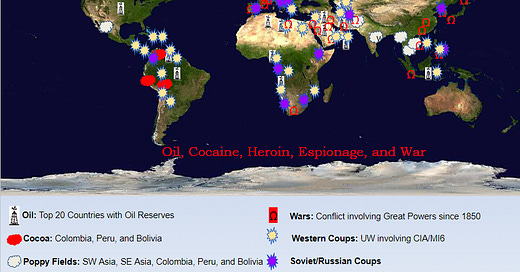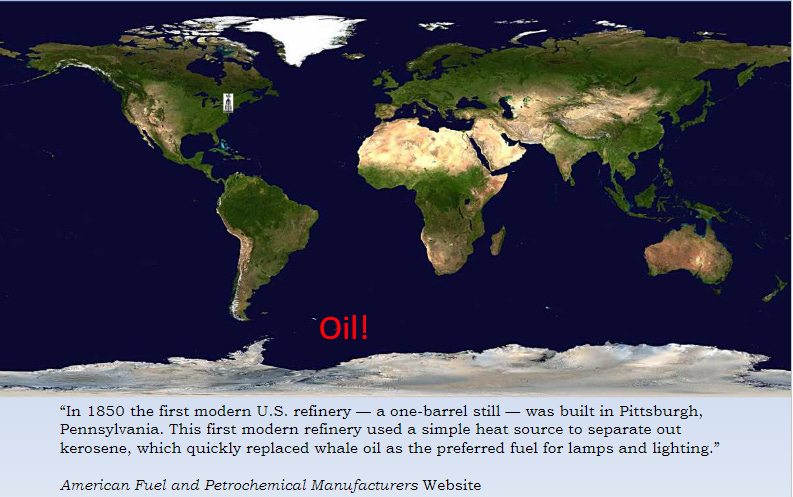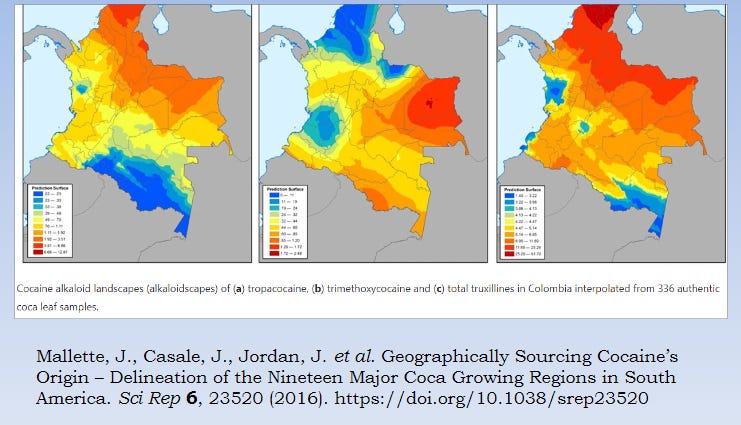In 2021 the Pseudodoxology Podcast Network deep dove the Iran-Contra scandal durign the Reagan administration. The compelling narrative argued that to understand the network arrangement of guns, espionage, and narcotics required a lengthy historical examination that screeched all the way to the construction of the first US oil refinery in 1850.
One of the compelling points in the series was the discussion of close association between opium, open warfare, CIA coups, oil, and cocaine. The slides below overlay this hypothesis. Lets start with the first US oil refinery:
From 1850 onwards, the global quest for oil was launched. The calculus of international relations changed. Bedouins became billionaires. People who no one thought about it previously required analysis. It would be interesting to map the growth of anthropology with the expansion of oil, but another time.
The countries with the biggest oil reserves are shown below:
Here is the ranked list:
Venezuela
Saudi Arabia
Canada
Iran
Iraq
Kuwait
United Arab Emirates (UAE)
Russia
Libya
Nigeria
United States
Kazakhstan
Qatar
China
Brazil
Algeria
Angola
Mexico
Ecuador
Norway
Lets move to drugs.
Cocaine is newer drug historically but no less impactful. Lets see where it is globally:
Its a narrow area. The heat map below shows the rate of production over this smaller region:
Why do we care about mischievous activities of the Clowns in Action (CIA) or even their Russian counterparts? Blood for oil was the slogan for opposition to the invasion of Iraq so we now why we mapped that, but there is also an interesting history of CIA drug trafficking that is requite to fund many of their activities. First we will map out their coups.
Mapping out coups was a bit of a chore. The CIA has been involved in some many attempted assassinations, coups, and regime changes it would fill up the map. As a generous gentleman, I wanted to focus on their successes (even if it was short-lived) and because the number of failures is high:
“During the Cold War, for instance, 26 of the United States’ covert operations successfully brought a U.S.-backed government to power; the remaining 40 failed. covert actions to support militant groups trying to topple a foreign regime nearly always failed. Of 36 attempts, only five overthrew their targets. Sponsoring coups was more successful: nine out of 14 attempted coups put the U.S.-backed leaders in power….My research found that after a nation’s government was toppled, it was less democratic and more likely to suffer civil war, domestic instability and mass killing.” O'Rourke, L.A. (2016, December 23) The U.S. tried to change other countries’ governments 72 times during the Cold War. The Washington Post.
Longer lists are available at the CIA’s website if you are so inclined.
KGB/SVR-RF efforts during this time are also included and marked by the purple star.
In terms of old fashioned Great Power Conflict since 1850 (not to include civil wars or intra state secession conflicts) here is what we have. I chose the war based on participants had to be in the that heavy weight class and not just an imperial power beating up on indigenous people in their holdings.
The latter 21st century US regime conflicts are included, because like the Spanish Civil war they are proxy conflicts between Great Powers:
Crimean War, 1853-1856
Second Opium War, 1856-1860
Shimonoseki Campaign, 1863-1864
Austro-Prussian War, 1866
Boshin War, 1868-1869
Franco-Prussian War, 1870-1871
Russo-Turkish War, 1877-1878
Philippine revolution, 1896-1898
Boxer Rebellion, 1899-1901
Russo-Japanese War, 1904-1905
First World War, 1914–1918
Russian Civil War, 1917–1922
Spanish Civil War, 1936–1939
Second World War, 1939–1945
Korean War, 1950–1953
Vietnam War, 1955–1975
Suez Crisis, 1956
Gulf War, 1990–1991
Bosnian War, 1992–1995
War in Afghanistan, 2001–2014
Iraq War, 2003–2011
Libya Conflict, 2011–present
Syria Conflict, 2011–present
Yemen Conflict, 2014–present
Global Coalition to Defeat ISIS, 2014–present
Ukraine War, 2022-present
Put it all together and here’s what you get.
Make your own conclusions.
Willie Sutton, when asked why he robbed banks: “Because that's where the money is.”
We have a friend who has often said: “The USA’s Chief Export is Security!”
The Rest of the World: “I wish you'd stop being so good to me, Cap'm.”












